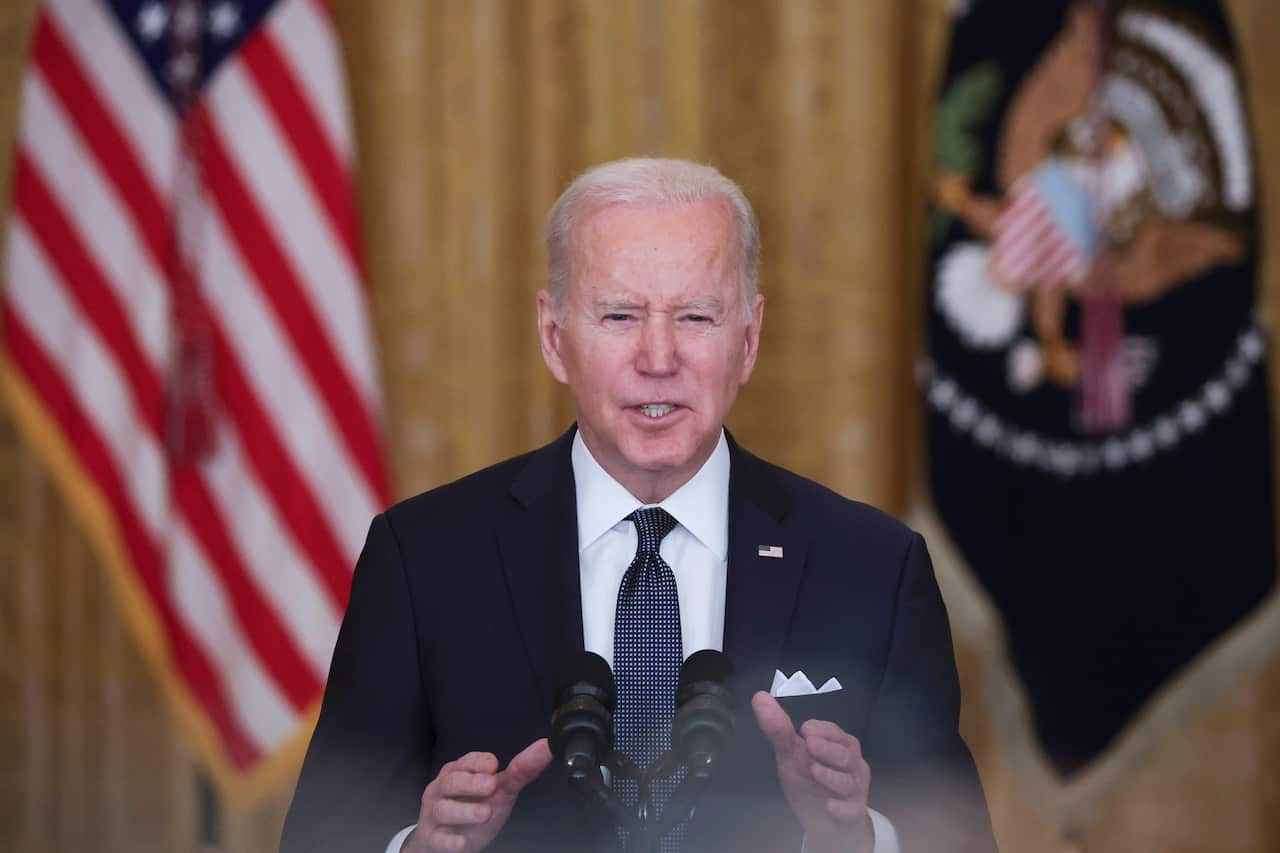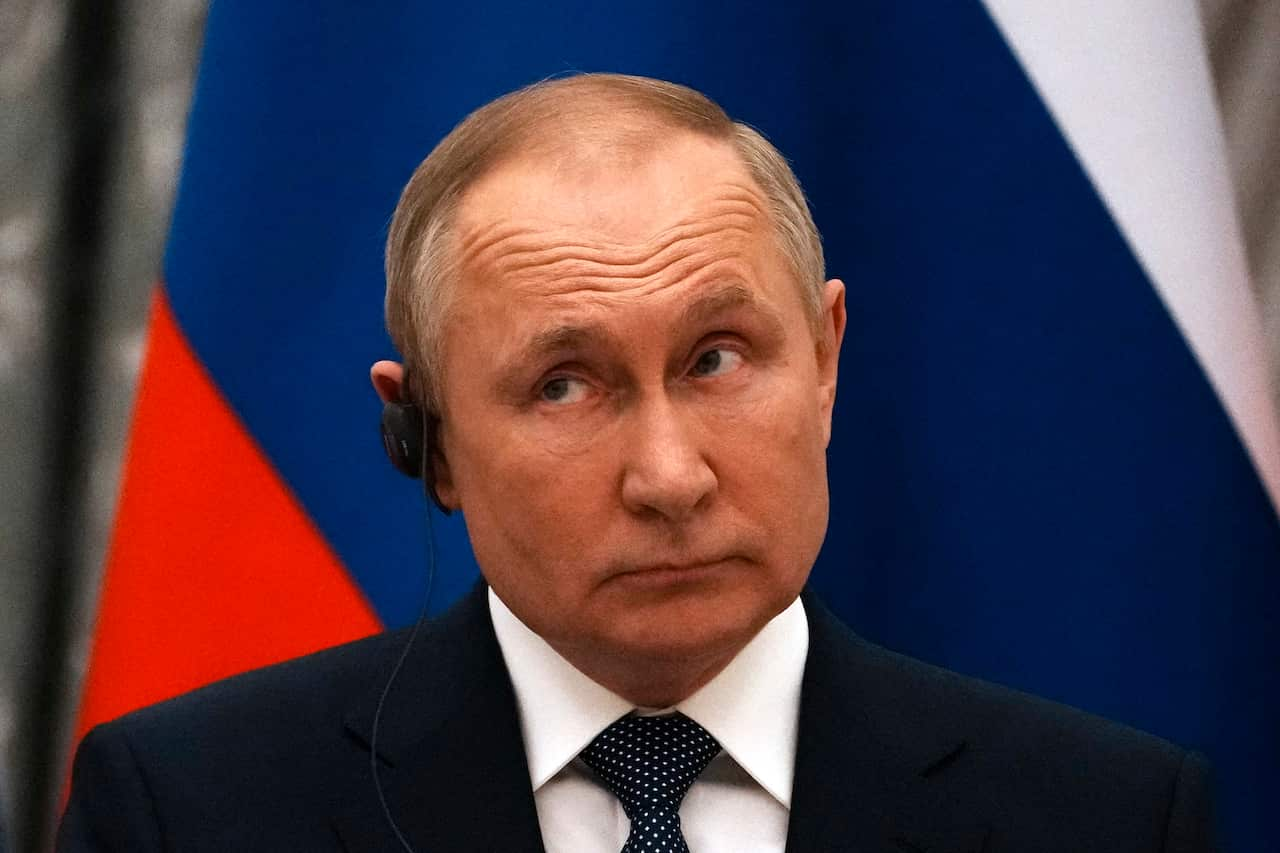The United States warned 16 February would be the day that Russia would invade Ukraine.
While no attack has yet occurred, there are 'no signs' Russian troops on the border have been recalled, and the US continues to warn the threat of invasion remains "real".
So has backstage diplomacy over the past few weeks helped to cool the prospect of war? SBS News asked three experts.
What diplomatic efforts have been made to avoid war?
United States President Joe Biden spoke with Russian President Vladimir Putin by phone over the weekend.
Following the conversation with his Russian counterpart, Mr Biden warned a Russian invasion of Ukraine remains on the cards but said the US is willing to give "diplomacy every chance to succeed'.
He said the US is open to making “practical, result-oriented steps that can advance our common security.”
“The United States has put on the table concrete ideas to establish a security environment in Europe,” he said.
“We're proposing new arms control measures, new transparency measures, new strategic stability measures. These measures apply to all parties, NATO and Russia alike.” His comments came hours after Russia announced that some units participating in military exercises near Ukraine's borders would begin returning to their bases, though the US, NATO and Ukraine have said there is 'no sign' this has occured.
His comments came hours after Russia announced that some units participating in military exercises near Ukraine's borders would begin returning to their bases, though the US, NATO and Ukraine have said there is 'no sign' this has occured.

US President Joe Biden delivers remarks on Russia and Ukraine in the East Room of the White House Source: AAP
Several European leaders, such as French President Emmanuel Macron, have also engaged with President Putin over the conflict.
Mr Putin said on Tuesday his nation did not want war and would continue negotiations.
"Concerning whether we want it (the war) or not - of course, not,” he said.
“That's why we put forward proposals about the negotiating process, which should have as a result an agreement on providing equal security of everybody, including our country.”
However, President Putin claimed Russia has not yet received “a substantial constructive response on proposals made by us."
Why the sudden escalation?
There are three significant drivers of the sudden escalation of Ukraine and Russia’s eight-year conflict, according to Dr Olga Boichak, a Ukraine expert at the University of Sydney.
She said the first important factor is Nord Stream 2 - a gas pipeline connecting Russia and Germany which is yet to be certified by Germany’s energy regulator.
"It is our understanding that [Putin] is ready to withdraw the troops if Nord Stream two becomes operational and if gas flows through those pipelines,” Dr Boichak said.
Conversely, the US has insisted the pipeline will not move forward if Russia invades Ukraine.
Another factor that has raised the temperature of the conflict is that Ukraine has lifted a moratorium on the sale of farmland, Dr Boichak said.
"It's actually really significant because for 20 years Ukrainians have not been able to sell their farmland," she said.
"That could've potentially led to rapid economic development, especially given that Ukraine ... has 40,000 hectares of very unique dark soil that is very fertile.
“I believe that is also a significant reason why Putin is acting now."
Dr Boichak believes the third issue of significance is Ukraine’s cultural shift from Russia.
"Culturally, Ukraine has really made that leap to separate itself from this Russian sphere of influence ... All these things I guess, are very disturbing to watch for Putin ... because Russia sees Ukraine as their dominion,” she said. Senior Fellow at the United States Studies Centre, Stephen Loosley, believes there are international factors influencing Russia’s consideration to invade.
Senior Fellow at the United States Studies Centre, Stephen Loosley, believes there are international factors influencing Russia’s consideration to invade.

Russia has played down accusations of a military build-up near Ukraine's border. Source: BBC
He said Russia is determined to achieve great status on the international stage and push back against NATO.
Mr Loosley believes Russia has never recovered from former US President Barack Obama’s description of the country as a “regional power.”
“The simple fact of the matter is the Kremlin ever since has been at great lengths to demonstrate that it has global reach from Caracas to Cairo,” he told SBS News.
Despite Ukraine’s move towards Europe and away from Russia, Mr Loosley said the Putin regime sees the nation as “intrinsically Russian.”
Mr Putin has previously said that Ukraine as an independent country is an artificial construct, and lamented the breakup of the Soviet Union as “the greatest geopolitical catastrophe of the century.”
“You have a circumstance with the dictatorships in our world where they really have difficulty in accepting that there's a functioning democracy neighbouring that offers a very different path," Mr Loosley told SBS News.
Diplomacy to avert a crisis
Dr Sara Meger, Lecturer in International Relations at the University of Melbourne, believes both the US and Russia are serving their domestic interests from their “tough guy” approach to diplomacy.
“I don't think that the Biden administration genuinely believes Russia is going to invade the same way that I don't think Russia has an intention to invade,” Dr Meger told SBS News.
“It's all a form of I guess, tough guy diplomacy and in order to get someone to blink first.”
Dr Meger said both parties understand the other’s position extremely well and expect a diplomatic solution to be achieved.
“They get to play back to their domestic constituents this warrior sort of persona,” Dr Meger said.
“I think both sides certainly believe the time will come when it's politically useful for them to be like ‘Okay, we'll do the big dog and pony show of having a sit-down meeting and coming to an agreement.’
“And then they also get to be heroes, once again to their domestic audiences, for diffusing the tension.” Mr Loosley said backstage diplomacy can help simmer tension. He said he agrees with Former UK Prime Minister Winston Churchill who observed it's “much better to jaw jaw than to war war.”
Mr Loosley said backstage diplomacy can help simmer tension. He said he agrees with Former UK Prime Minister Winston Churchill who observed it's “much better to jaw jaw than to war war.”

Soldiers work with their military vehicle at the during the Union Courage-2022 Russia-Belarus military drills in Belarus, a country that neighbours Ukraine. Source: BelTA
But he said the decision to invade ultimately lies in the hands of President Putin and a handful of his close associates.
“Diplomacy is not appeasement and only fools fail to recognise that,” he said.
“But ultimately, this will be a very cold calculation on the part of the Kremlin as to whether or not they proceed with military adventure and quite ruinous military adventuring in Ukraine.”
Dr Boichak said while Russia projects a narrative of being threatened, it’s important to remember that they’re the ones fortifying the Ukrainian border.
She said the dialogue between world powers and Russia is exactly what President Putin was after.
"Putin had severe reputational damage for years because of what he did in Ukraine,” she said.
"Now we're seeing leaders from the West are really making efforts to reach out to Putin.
“He is getting what he wants because he's being respected, he's being reckoned with and he's being negotiated with."
How likely is a Russian invasion of Ukraine?
Like President Biden, Mr Loosley believes a Russian invasion of Ukraine remains a possibility, and not only in the immediate term.
But he said a traditional military invasion isn’t the only concern and that Russia can also make its presence felt in other ways, such as through cyber warfare.
“All of these matters have been discussed quite openly by Western intelligence and identified as conceivable threats,” he said. Dr Meger compared the current conflict to the Cuban Missile Crisis where powerful leaders refused to back down from their positions but there was no physical warfare.
Dr Meger compared the current conflict to the Cuban Missile Crisis where powerful leaders refused to back down from their positions but there was no physical warfare.

Russian President Vladimir Putin reacts during a joint press conference with French President Emmanuel Macron after their talks in Moscow on 7 February 2022. Source: AAP
“It was the case that the administration on both sides were in constant communication about what they were doing, what the interests were on each side, but they were able to come to a diplomatic resolution and it didn't eventuate in conflict between the two superpowers,” she said.





